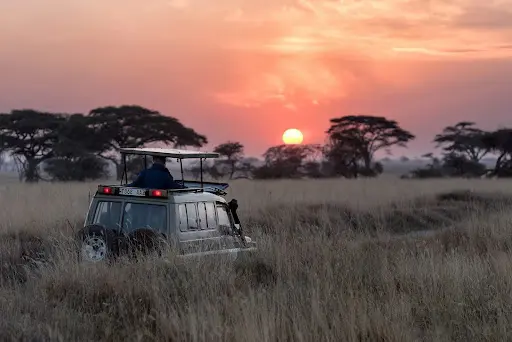MD: Safari destinations are proof that travelers want unique, memorable experiences. However, they also expect convenience and flexibility. On-demand tour booking apps can bridge that gap.
Safari attractions are well recognized among tourists around the world. Nevertheless, as the population of the tourism industry grows, so do the demands of convenience, personalization, and the flow of digital booking processes. That is where on-demand tour booking apps enter. They can revolutionize the way visitors plan their safaris and wildlife experiences. At the same time, they introduce new revenue streams for tour operators and reserves. Let’s dig deeper.

Why On-Demand Apps Are a Game Changer for Safari Tourism
Emails, phone calls, or third-party travel agents — all these support traditional bookings. This process can be slow and limits last-minute travelers. On-demand apps allow guests to:
- Browse available tours in real time
- Make Aquila private game reserve on GetExperience online
- Compare packages, prices, and guides
- Book instantly with secure payments
- Access digital tickets and itineraries
- Customize experiences with add-ons
Such apps streamline operations, reduce paperwork, and increase visibility to a global audience.
Key Features for Safari Tour Apps
To succeed in the safari and wildlife sector, booking apps must go beyond the basics. They need features designed for unique environments and traveler expectations.
- Integration with tour operators’ schedules to prevent overbooking.
- Multi-language support
- Offline access
- GPS and live tracking
- Ratings and reviews
- Add-on services
Challenges to Consider
Scaling safari tour apps comes with hurdles that tech providers and operators must prepare for.
- Connectivity issues — Rural or wildlife areas often lack reliable internet. So, robust offline features are required.
- Integration with local operators — Smaller safari companies may still rely on manual systems.
- Seasonality — Wildlife tourism is heavily seasonal.
- Conservation and safety rules — Apps must align with local regulations on wildlife protection, guest safety, and park entry limits.
- Payment diversity — Travelers use different payment methods. So, wide payment gateway support is essential.
Revenue Models for Safari Booking Apps
On-demand booking systems have the ability to earn revenue in various forms. The selection of the appropriate mix will be based on the target users, operator partnerships, and the scalability objectives.
- Commission-based — Take a percentage of each tour booking. Standard in travel and hospitality apps.
- Subscription fees — Charge operators a monthly fee to list and manage tours on the platform.
- Premium listing — Reserves will pay more to have their tours listed at the top of the search results.
- In-app upgrades — Earn by selling meals, transport, merchandise, or VIP upgrades and tour bookings.
The Bigger Picture
Niche apps can contribute to sustainable tourism. They make it possible to digitize bookings. Thud, wildlife parks can control visitor flow, reduce paper waste, and improve conservation funding through transparent tracking of ticket sales. For travelers, it means a seamless experience from city hotel to safari jeep. For operators, it ensures more efficient operations and steady growth.
Final Word!
Safari destinations are proof that travelers want unique, memorable experiences. However, they also expect convenience and flexibility. On-demand tour booking apps can bridge that gap. The only thing is that they are to be built with the right features, tackle local challenges, and adopt scalable revenue models.
For entrepreneurs and tour operators, now is the time to explore how white-label app solutions can speed up entry into this exciting niche. With the right tech partner, scaling safari bookings through apps could be the next big leap in wildlife tourism.

















